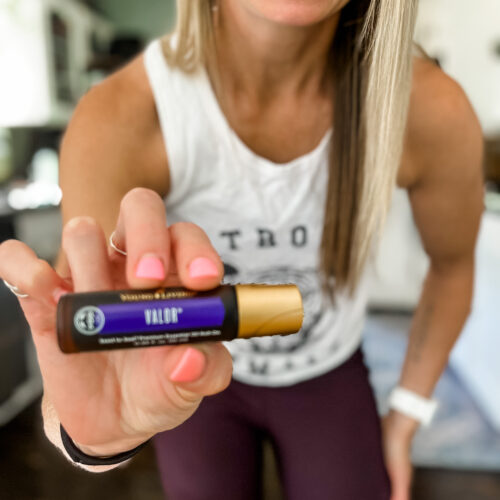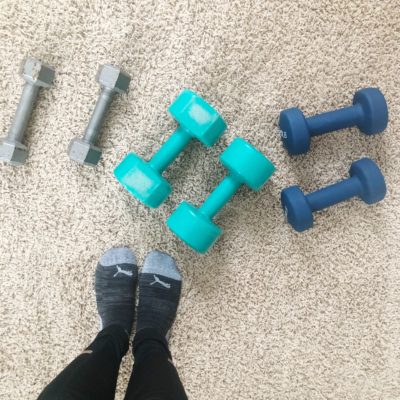Ah, sleep. The number one thing besides time that we all probably wish we got more of every day. Sleep is one of the most critical components to our overall health, and all to often many people disregard it as an optional self-care tactic. Yet, when was the last time you woke up and truly felt well rested?
I’ll tell ya what, over the past few years — ironically the years when I have had babies and toddlers, I have really been making quality sleep a priority and I can definitely tell you the days/nights when I am successful and those that I fall off the wagon a bit and pay for it the next day (or two).
Adjusting just a few things in your life and home can start to make big impacts on the quality and duration of your sleep. Waking up feeling more rested, having more energy throughout the day, not relying on additional caffeine, and improved mood may all be side effects and in turn create positive reinforcement to keep up the changes.

- Invest in room-darkening shades
You may not notice it, but your sleep quality is impacted by the amount of light that is in your room. We have a home in the suburbs with just shy of one acre of land on a poorly lit road, yet our room is still fairly well lit by the moon at night if we don’t shut our curtains. We don’t have blinds to close like the other bedrooms in the home do, and I am one that loves natural lighting and SUNLIGHT as much as possible. Therefore I opt to have very light color curtains. While I prefer the look of the sheer curtains, to best aid in our sleep quality we have purchased room darkening curtains.
It has made such a difference both in the summer when there are longer daylight hours, but even in the winter as well since the snow reflects the moonlight. If you do have blinds in your room you could test out if that blocks out enough light, but in my experience typically it does not (especially around the edges of the window).
2. Adjust the temperature to 67 degrees or cooler
Yes, that sounds chilly, and yes it probably will be. And that’s the point. We have small children in our home and typically during the day/evening hours (non-sleeping hours) it is set to about 70 degrees. Mind you, we live in a home built in 1940 so the windows (although most are not original) and insulation are not up to par for keeping the home at that temp. We keep the thermostat set at a comfortable temperature and maybe even on the warmer side (I run cold most days), but at night time we turn it down a few degrees. If our kiddos were a bit older we may even go colder, but for now it works and mainly because our bedroom is upstairs and is naturally a bit colder in the winter.
Having the room at a cooler temperature creates a more suitable sleeping condition for our bodies. Most research says anywhere from 60 to 67 degrees is optimal. And in fact the temperature of the room may impact REM sleep– the deep sleep that is most beneficial for our health and provides the most rest and recovery. If you’re starting to get the impression that your room is sounding like a cool, dark cave…that’s the idea.
3. Say good-bye to the television
I know I just lost some of you. This was a non-negotiable for me for many years — primarily my early twenties during college and late night and late morning lounging. When my husband and I first moved in together though we agreed that we would not have a TV in the bedroom, specifically to facilitate a good sleep environment.
I had been one for years that would fall asleep with the TV on, and at some point at least set the “sleep” function on it for usually an hour or so after getting in to bed. Now looking back I cannot believe I did that! It has been one of the BEST decisions to not have the TV in our room. We keep our TV watching, and trust me there is ample time that we still have, to the main area in the living room and keep electronics out of the bedroom (except cell phones, primarily for my husband’s Type I Diabetes).
When there is a TV in the bedroom, you’re more apt to watch it right before bed, not only exposing yourself to blue light which is disruptive to sleep, but also to negotiate your bedtime.
4. Diffuse essential oils
This is probably my fave. I have long loved essential oils and the effect that various scents and smells have on my physical and mental/emotional state. A rollerball essential oil bottle in the morning has become a staple to set the tone for my morning, as has diffusing them in the evening in our room. Calming scents like lavender, valerian, chamomile, and/or clary sage have been shown in countless studies to help aid in relaxing your mind and body, promoting more restful sleep.
In addition (or instead of) diffusing essential oils, I have also simply sprinkled a few drops on the rugs in our bedroom or onto our bedding (depending the oil). Other ways to integrate essential oil use to help relax before bedtime is to use a rollerball and apply a small amount to your wrists and neck, or even to use a carrier oil like coconut oil with a couple of drops of essential oil and massage the bottoms of your feet. The soles of our feet actually absorb quite well and are a primary spot to apply the oils — give it a try!
5. Turn on a soft fan
I think I saved the best, most effective for last. Sure, fans are obviously great for circulating air and keeping temperature better regulated especially in those warm months. Even in the winter/colder months though, fans can be an awesome method for adding in a “white noise” type of sound to your room, helping distract from other environmental noises. I don’t think we fully realize how easily disrupted we can be from noises outside, appliances turning on/off, other people in the home, etc., and the more we can tune that out, the more we can set ourselves up for better sleep.
We have liked a tall, stand-up fan we purchased on Amazon a few years ago that have a variety of speed settings. That way we are able to choose different ‘sound’ settings based on what we want– summer months we have windows open and often a higher setting to cancel out outdoor sounds is helpful. We also have a ceiling fan, but have found it doesn’t provide the same “white noise” effect that our stand-up fan does. Since our home is primarily hardwood floors (even in the bedrooms), it makes for a noisier home as well, so we have added a fan to each of our kids’ rooms, too.
All in all, if you’re having trouble sleeping some nights, starting with some of the simple shifts in the environment in your room can start to make a big difference in how well you fall asleep & stay asleep. A bedroom should be a zen-like place in your home, promoting calm, relaxing, and stress-free energy. So pick a few of the ideas listed above and let me know how it goes!


